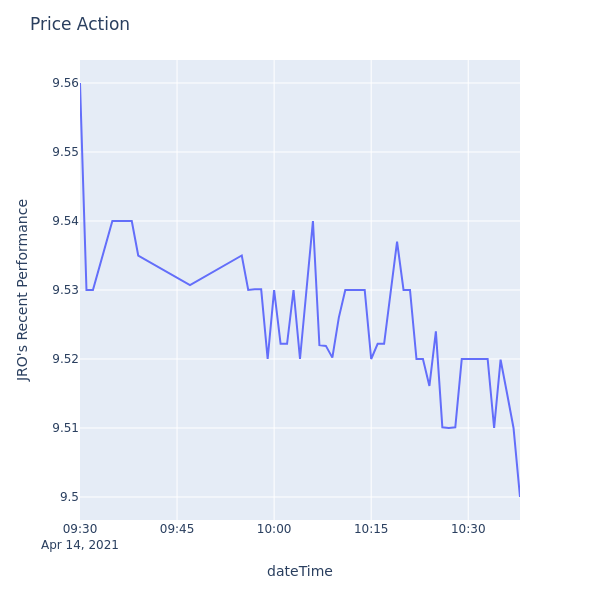Insider Sells Nuveen Floating Rate Income Opportunity Fund Shares
Author: Benzinga Insights | April 14, 2021 01:14pm
Saba Capital Management, L.P. filed a Form 4 with the SEC on Wednesday, April 14. The insider sold 11,958 shares of Nuveen Floating Rate Income Opportunity Fund (NYSE:JRO) at $9.57 on Monday, Apr 12, and sold 28,507 shares at $9.55 on Tuesday, Apr 13. . After the transactions, the executive's stake in Nuveen Floating Rate Inc Inc. movedto 4,457,397 shares. Shares of Nuveen Floating Rate Income Opportunity Fund moved higher by 0.1% from the previous closing price.
Why Insider Transactions Are Important?
While transactions from an insider shouldn't be used as the sole item to make an investment or trading decision, an insider buying or selling stock in their company can be a good added factor that leads to more conviction in a decision.
Insiders buying stock after a notable sell off can indicate an insider's long-term belief in the success of the company; insiders buying stock at new highs can be an indication the exec doesn't feel the stock is overvalued. Insiders who sell stock at new lows could be anticipating some capitulation moment. If the insider sells at new highs, it could point to the intention to "take some profit" and "lock in a gain."
Important Transaction Codes
Investors prefer focusing on transactions which take place in the open market, indicated in the Form 4 with codes P for purchase and S for sale. An open-market transaction means the insider went into the market of their own volition and made an active decision about the potential path for a company and its stock moving forward.
Transaction codes besides P or S aren't relatively important as they are seldom tied to a decision by the executive. For example, transaction code A is indicative of an insider being forced to sell shares to attain compensation. Moreover, transaction code C indicates the conversion of an option.

Posted In: JRO





